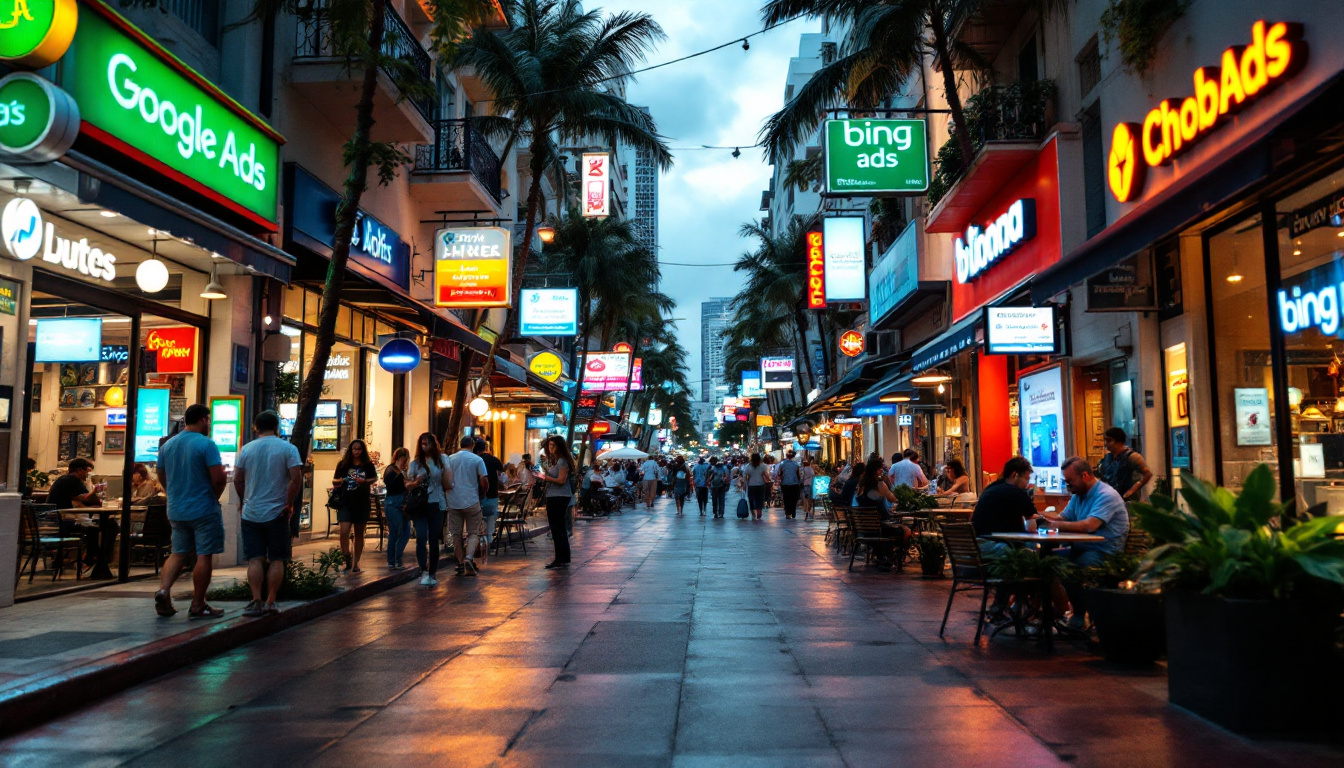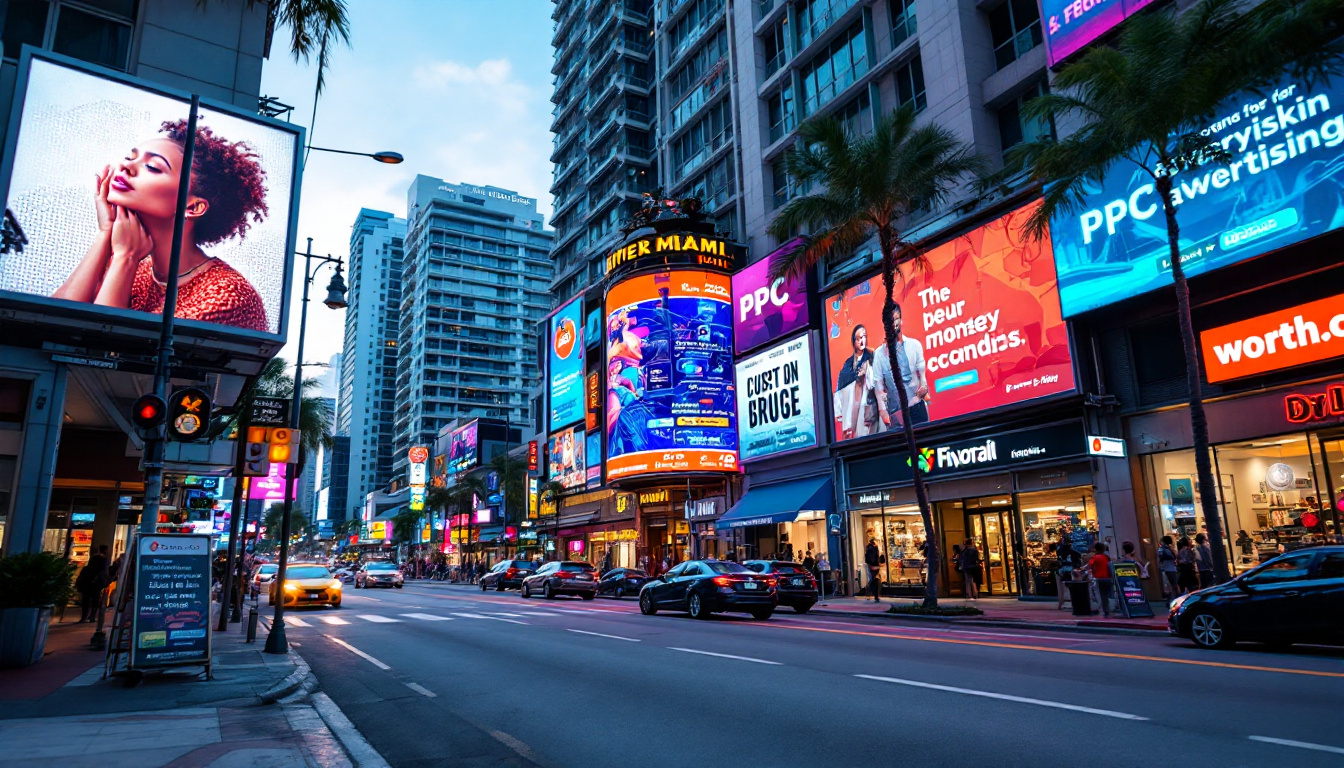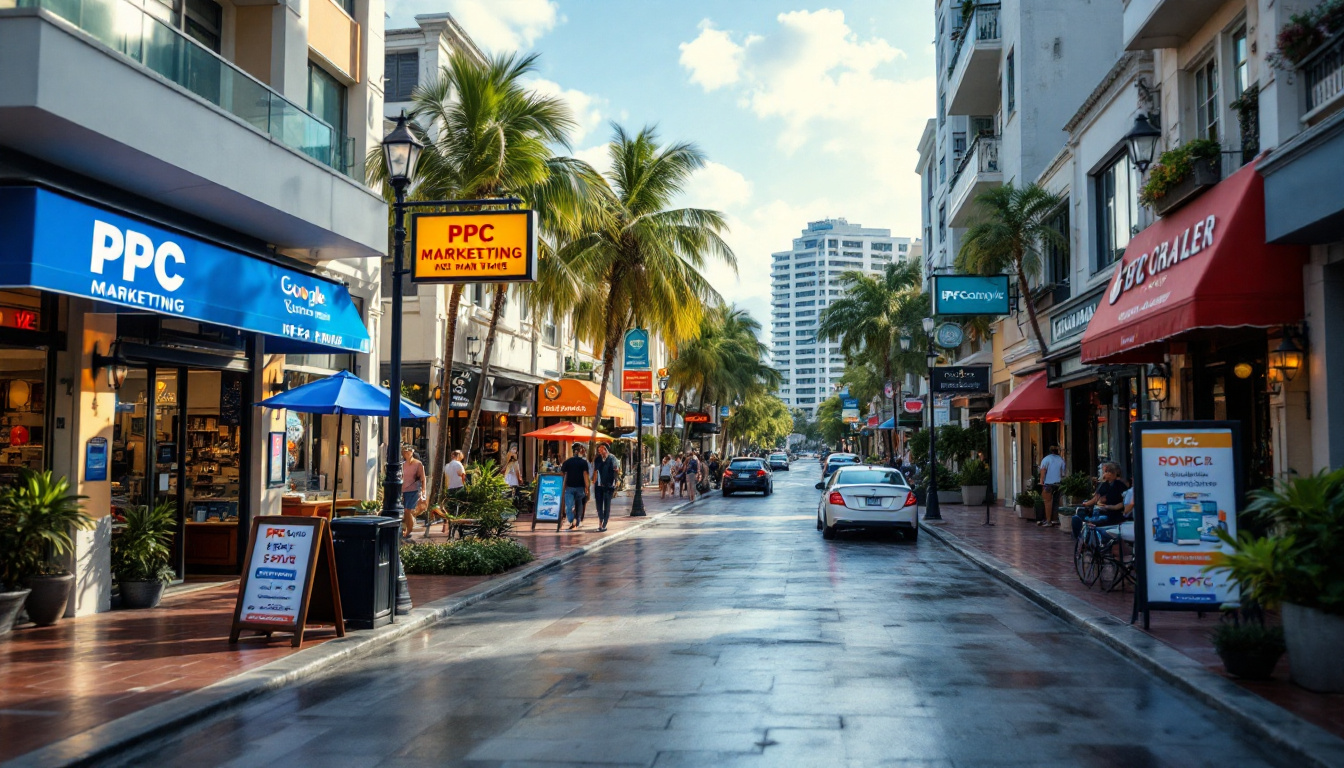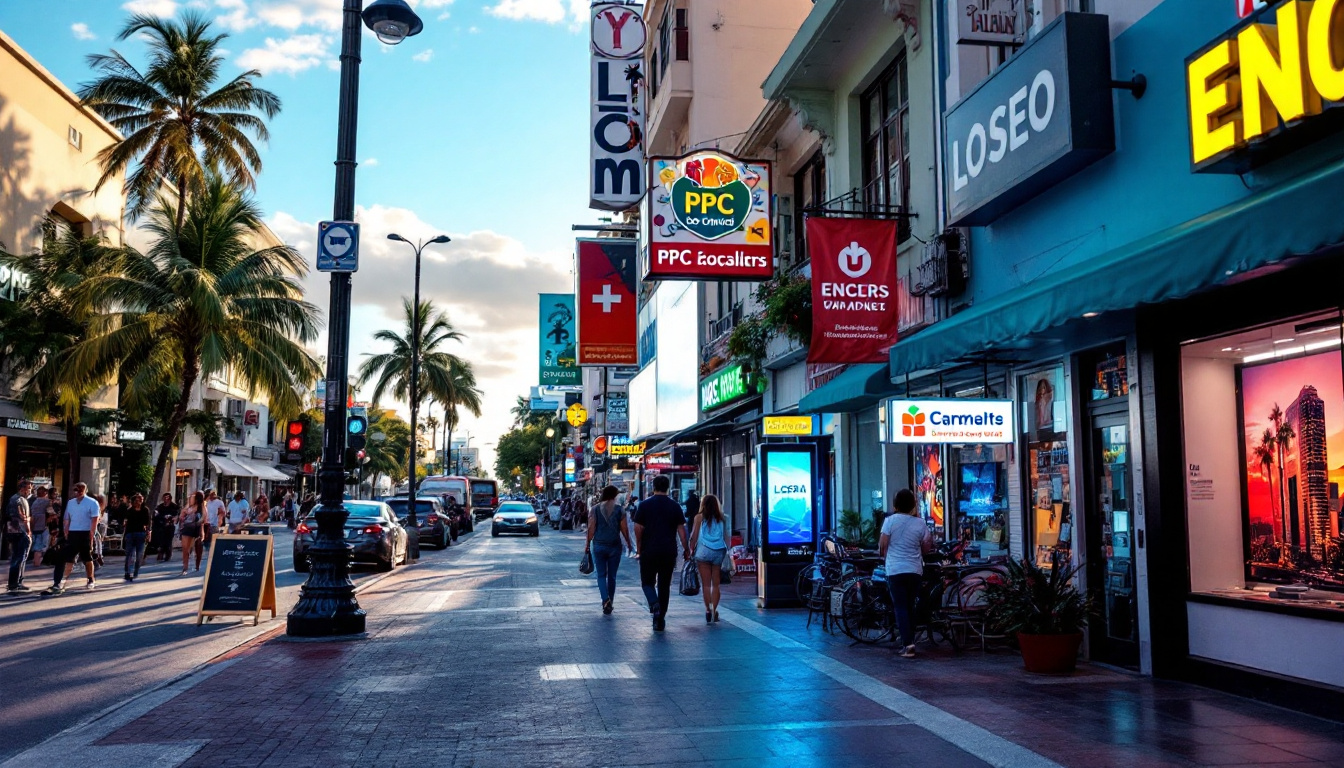Top PPC FAQs Answered for Miami, FL Businesses

PPC, or Pay-Per-Click advertising, is a powerful digital marketing strategy that can significantly boost visibility and traffic for businesses in Miami, Florida. As local businesses look to enhance their presence online, it's crucial to understand the fundamentals of PPC, its importance, how to choose the right platform, costs involved, and methods for measuring success. In this article, we address commonly asked questions surrounding PPC advertising tailored specifically for businesses in Miami.
What is PPC and how does it work?
PPC, short for Pay-Per-Click, is an online advertising model where advertisers pay a fee each time one of their ads is clicked. It's essentially a way to buy visits to a website, rather than attempting to "earn" those visits organically through search engine optimization (SEO). The most common PPC platform is Google Ads, but there are other options like Bing Ads and social media platforms. This model has gained immense popularity due to its ability to deliver immediate traffic and measurable results, making it an attractive option for businesses of all sizes.

The core of PPC is the auction-based system where advertisers bid on keywords relevant to their business. When a user searches for a keyword you’ve bid on, your ad may appear at the top of the search results. Each click on your ad costs you a portion of your budget, hence the name “pay-per-click.” Your goals with PPC can vary; some businesses prioritize traffic, while others might focus on lead generation or direct sales. The effectiveness of a PPC campaign can often be gauged through metrics such as click-through rates (CTR), conversion rates, and return on ad spend (ROAS), allowing advertisers to refine their strategies over time.
Components of a PPC Campaign
A successful PPC campaign involves several key components:
- Keyword Research: Identifying keywords that potential customers are using to search for products or services related to your business.
- Ad Creation: Crafting compelling ad copy that encourages clicks.
- Landing Pages: Designing user-friendly landing pages that convert visitors into customers.
- Monitoring and Optimization: Regularly reviewing your campaigns to analyze performance and make necessary adjustments.
In addition to these components, understanding your target audience is crucial for a successful PPC campaign. By analyzing demographics, interests, and online behavior, advertisers can tailor their ads to resonate with specific groups, increasing the likelihood of engagement. Furthermore, utilizing ad extensions—such as site link extensions, call extensions, and location extensions—can enhance the visibility and effectiveness of your ads, providing users with more information and options right from the search results page. This holistic approach not only improves click-through rates but also helps in building brand credibility and trust among potential customers.
Another vital aspect of PPC is the importance of A/B testing. This involves creating multiple variations of ads or landing pages to determine which performs better. By systematically testing different headlines, calls to action, and visuals, advertisers can optimize their campaigns for maximum impact. Additionally, leveraging analytics tools allows for deeper insights into user behavior, enabling businesses to make data-driven decisions that enhance their PPC strategies. As the digital landscape continues to evolve, staying informed about the latest trends and best practices in PPC advertising is essential for maintaining a competitive edge.
Why is PPC important for local businesses?
PPC is crucial for local businesses in Miami as it allows them to target specific audiences effectively. With the population density and diversity in Miami, PPC helps businesses connect with the right customers at the right time. Local targeting features enable businesses to narrow down their audience based on geographic location, which increases the likelihood of conversion.

Furthermore, PPC advertising offers immediate results. While SEO efforts can take months to culminate in results, PPC can drive traffic almost instantly after the ad is live. This rapid visibility can be particularly critical for time-sensitive promotions or new product launches. For instance, a local restaurant can run a PPC campaign to promote a special event or a seasonal menu, ensuring that the message reaches potential diners right when they are looking for dining options.
Additionally, PPC campaigns can be tailored to reflect local culture and preferences, making ads more relatable and engaging for Miami residents. By incorporating local language, imagery, and references, businesses can foster a connection with their audience that resonates on a personal level. This localized approach not only enhances brand loyalty but also encourages word-of-mouth referrals, which are invaluable in a tight-knit community.
Benefits of PPC for Miami Businesses
Some notable advantages of PPC for local businesses include:
- Increased Visibility: Your business can appear at the top of search engines, making it more visible to potential customers.
- Cost-Effective: Since you only pay when someone clicks on your ad, you can set a budget that suits your needs.
- Exact Targeting: Reach users based on demographics, interests, and specific behaviors.
- Measurable Results: Analytics tools allow you to track performance and adapt your strategies effectively.
Moreover, PPC campaigns can be adjusted in real-time, allowing businesses to respond quickly to market changes or shifts in consumer behavior. For example, if a local clothing store notices a spike in interest for summer apparel, they can immediately ramp up their PPC efforts to capitalize on this trend. This agility not only maximizes return on investment but also positions businesses as responsive and in tune with their customers' needs.
Another significant benefit of PPC is the ability to retarget previous visitors. By utilizing retargeting strategies, businesses can remind potential customers of their products or services after they have left the website, increasing the chances of conversion. This is particularly effective in a vibrant city like Miami, where residents and tourists alike may browse multiple options before making a decision. Retargeting ads can serve as gentle nudges, encouraging users to return and complete their purchases.
How to select the best PPC platform?
Selecting the right PPC platform hinges on understanding your target audience and where they spend their time. Google Ads is a common choice due to its extensive reach, but exploring other platforms may yield better results depending on your business type.
For instance, if your business targets a younger demographic, platforms like Instagram or TikTok might be advantageous. Conversely, LinkedIn may be the best choice for B2B companies thinking about lead generation. Consider the platforms where potential customers frequently engage, and assess the features and benefits each platform offers.
Key Considerations
While selecting a PPC platform, keep these factors in mind:
- Audience Demographics: Know where your audience is active and tailor your choice accordingly.
- Types of Ads: Different platforms offer various ad formats; ensure they align with your marketing goals.
- Budget Constraints: Understand the cost structures of each platform and find one that matches your resources.
Additionally, it’s essential to evaluate the level of competition on each platform. For example, while Google Ads might provide a vast audience, the competition can be fierce, driving up costs. On the other hand, emerging platforms may offer lower competition, allowing your ads to stand out more effectively. Conducting a competitive analysis can provide insights into where you might gain an edge and maximize your return on investment.
Another important aspect to consider is the analytics and tracking capabilities of each PPC platform. Robust analytics tools can help you measure the effectiveness of your campaigns in real time, allowing for adjustments and optimizations as needed. Platforms that offer comprehensive reporting features can provide valuable data on user behavior, conversion rates, and overall performance, enabling you to make informed decisions that enhance your advertising strategy.
What are the costs associated with PPC?
The costs involved in PPC can vary widely depending on several factors including the industry, competition, and the chosen platform. Generally, PPC operates on a bidding system, and costs can range from a few cents to hundreds of dollars per click.
In Miami, businesses in highly competitive industries like real estate or hospitality may experience higher click costs compared to those in niche markets. It's important to establish a budget that aligns with your marketing goals and to continually monitor your spending against performance metrics.
Understanding Bidding Strategies
There are several bidding strategies that can influence your PPC costs:
- Cost-Per-Click (CPC): You pay each time someone clicks your ad.
- Cost-Per-Impression (CPM): You pay for every 1,000 impressions, regardless of clicks.
- Cost-Per-Acquisition (CPA): You set a target cost for acquiring a customer, optimizing for conversions.
How to measure the success of your PPC campaigns?
Measuring the success of your PPC campaigns is essential for evaluating the effectiveness of your advertising spend. Utilizing tools like Google Analytics can help in tracking various metrics that demonstrate campaign performance.
Key performance indicators (KPIs) to consider include:
- Click-Through Rate (CTR): A metric that indicates how well your ad is performing in terms of attracting clicks.
- Conversion Rate: The percentage of visitors who complete the desired action, such as making a purchase or filling out a form.
- Return on Ad Spend (ROAS): This ratio compares your revenue generated from ads to the amount spent on the campaign.
Continuous Review and Adjustment
Success in PPC requires ongoing analysis and optimization. Regularly review your campaign performance, test different ad formats or keywords, and refine your strategies to enhance results over time. By adapting to market trends and consumer behavior changes, Miami businesses can maximize their PPC investment effectively.
In summary, PPC offers Miami businesses a dynamic and flexible avenue for increasing visibility and driving sales. By understanding its fundamentals and continuously optimizing their strategies, local businesses can thrive in the competitive Miami market.

As a Google Ads expert, I bring proven expertise in optimizing advertising campaigns to maximize ROI.
I specialize in sharing advanced strategies and targeted tips to refine Google Ads campaign management.
Committed to staying ahead of the latest trends and algorithms, I ensure that my clients receive cutting-edge solutions.
My passion for digital marketing and my ability to interpret data for strategic insights enable me to offer high-level consulting that aims to exceed expectations.









